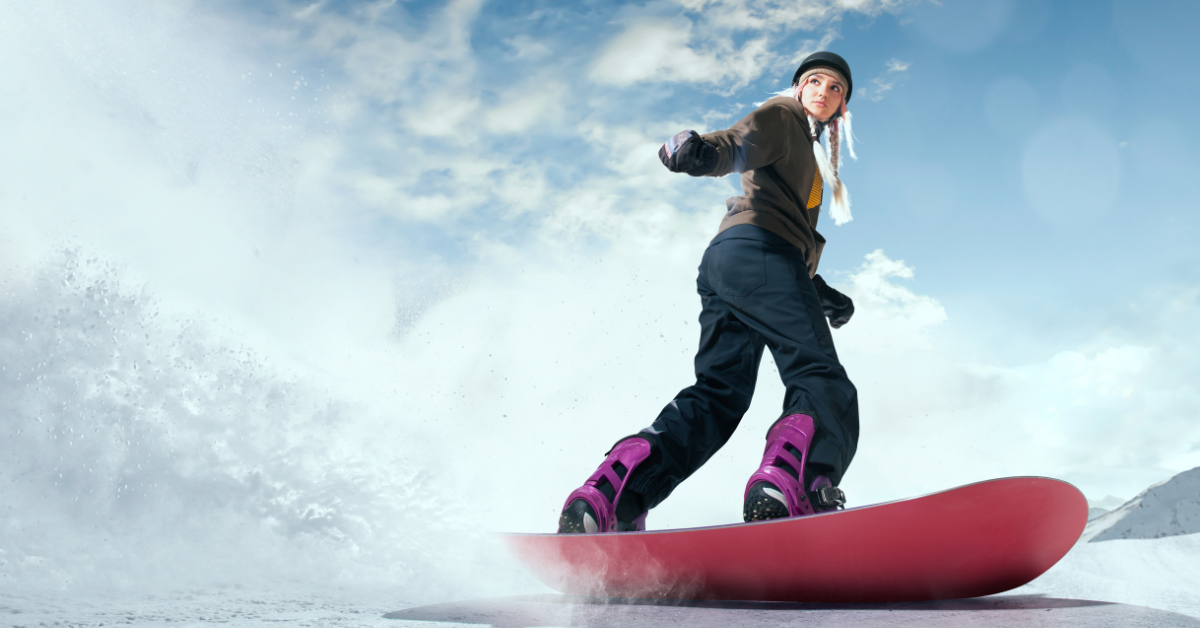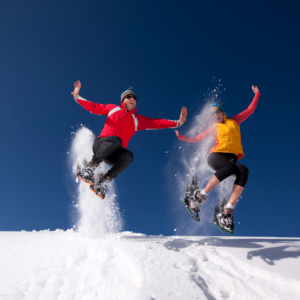
You either love winter or you hate it.
Here at Merrill PT, we embrace the thrill of the first snowfall! It’s our cue to gear up for adventure—whether it’s skiing or snowboarding down Granite Peak, ice skating at the Smith Center, snowshoeing at Council Grounds State Park, or sledding at Sylvan Hill. While frolicking in the winter wonderland promises heaps of fun, safety is crucial.
Winter sports in Central Wisconsin are so much fun, but they can bring their fair share of falls and bumps, just like any other activity. Plus, there’s the added challenge of staying safe in the cold. In this blog, we have gathered some winter safety tips to help you steer clear of common injuries. These tricks aren’t just for keeping you safe; they’ll also make sure you can fully enjoy the snowy Central Wisconsin area.
General Guidelines
No matter what your winter sport is, it is important to take a few minutes and make sure you know how to be safe. Here are some of our general guidelines to stay safe.
- Don’t wait until the last minute. Start strength training the muscles you will need a month or so ahead of time. This will help you get into proper shape.
- Make sure you are in good physical condition for activities in the cold. If you are unsure, check with your doctor.

- Warm-up with light exercise for 5 minutes before you engage in any sport.
- Make sure your equipment and protective gear are in good condition and fit well.
- Always wear the appropriate protective gear for your sport.
- Dress properly for the cold. Protect yourself from frostbite and hypothermia.
- Wear several layers of tops and pants under warm jackets. Wear hats and water-resistant gloves. Face masks may be necessary for very cold weather.
- Protect your eyes from snow glare with shatter-proof sunglasses or goggles with UV protection.
- Take lessons to improve your ability. Better skills will allow you to adjust to changing conditions.
- Many organizations, like the National Ski Areas Association, recommend the use of helmets for downhill winter sports to prevent head injury.
Skiing and Snowboarding
Skiing and snowboarding have their own special equipment. The right equipment and the right fit are as important as knowing what you are doing. This will reduce your risk of injury. Here are some other things you need to know before you hit the slopes.
- Take lessons from an expert. Evidence supports that beginners are hurt more frequently. The quicker you improve, the safer you will be on the slopes.
- Stick with your abilities. Do not attempt to ski a slope that is beyond your personal abilities. Ski-marked trails and observe trail signs. Rest when you get tired.
- Be sure that equipment is properly maintained and clean—no dirt or salt between boots, bindings, and the binding mechanism.
- Properly adjust bindings to reduce the chance of leg injuries. Test your ability to escape bindings by standing in the skis, then twisting to release the toe and heel pieces
- Wear the proper gear for snowboarding. This includes snowboarding pants, wrist guards, arm guards, and shin guards.
- When approaching the lift, be aware of pieces of clothing that could become entangled.
- Wear a helmet specifically designed for snow sports.
- Always ski or board with a buddy.
- Know and observe all the rules about crossing a trail, passing, and stopping.
- Wear sunscreen.
- Wear bright colors.
- If you are cross-country skiing for long distances, take snacks, water, extra clothes, and first aid supplies with you. Take a cell phone if you will be skiing in a remote area.
Winter in Central Wisconsin is truly magical. Don’t miss out on the joys of the season—stay safe on the slopes! Give Merrill PT a call at (715) 539-2740. We’ll check your injury, kickstart your treatment plan, and most importantly, get you back to enjoying winter sports without worry. Your winter adventures await!
